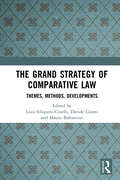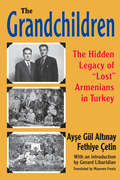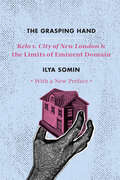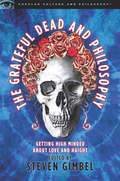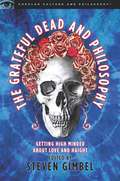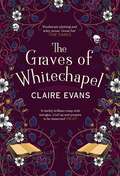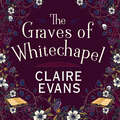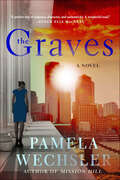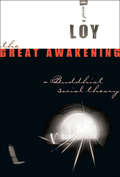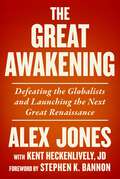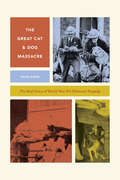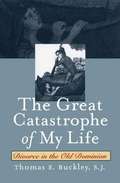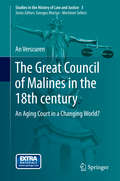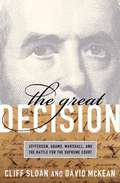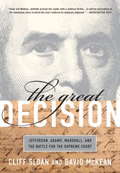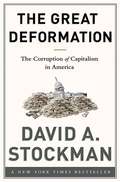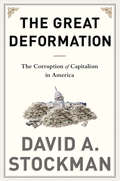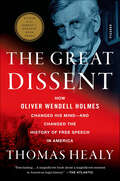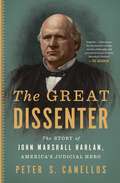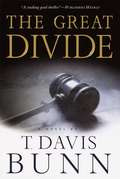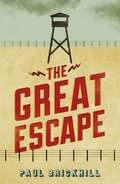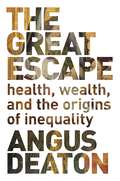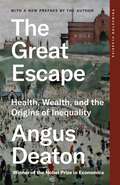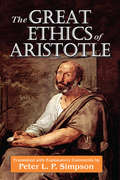- Table View
- List View
The Grand Strategy of Comparative Law: Themes, Methods, Developments
by Luca Siliquini-Cinelli Mauro Balestrieri Davide GiantiThis book features original essays by leading academics and emerging researchers written in honour of a legal comparatist who, over the course of four decades, has played a major role in comparative law’s development: Pier Giuseppe Monateri.Rather than being just a celebrative work without analytical appeal, this book makes a significant contribution to the comparative legal literature by exploring key comparative law themes and recent developments in the field. Reflecting Monateri’s vast expertise, innovative thinking, and truly global network, the volume is divided into five thematic areas of both scholarly and practical significance: Comparative Law and Its Methods; Comparative Private Law; Law and Literature; The Politics and Ontology of Law; Comparative Law & Economics. Discussing novel case-studies as well as exploring Monateri’s importance to the comparative enterprise through various trajectories of inquiry – for example, normative, doctrinal, empirical, critical – this book takes a fundamental and much-needed step towards the establishment of comparative law as a fully-fledged academic discipline and professional practice.Addressing the current status and future direction of comparative law, this book will appeal to legal comparativists, as well as students and scholars with broader interests in the nature of legal cultures.
The Grandchildren: The Hidden Legacy of 'Lost' Armenians in Turkey
by Ayse Gul AltinayThe Grandchildren is a collection of intimate, harrowing testimonies by grandchildren and great-grandchildren of Turkey's "forgotten Armenians"—the orphans adopted and Islamized by Muslims after the Armenian genocide. Through them we learn of the tortuous routes by which they came to terms with the painful stories of their grandparents and their own identity. The postscript offers a historical overview of the silence about Islamized Armenians in most histories of the genocide.When Fethiye cetin first published her groundbreaking memoir in Turkey, My Grandmother, she spoke of her grandmother's hidden Armenian identity. The book sparked a conversation among Turks about the fate of the Ottoman Armenians in Anatolia in 1915. This resulted in an explosion of debate on Islamized Armenians and their legacy in contemporary Muslim families.The Grandchildren (translated from Turkish) is a follow-up to My Grandmother, and is an important contribution to understanding survival during atrocity. As witnesses to a dark chapter of history, the grandchildren of these survivors cast new light on the workings of memory in coming to terms with difficult pasts.
The Grasping Hand: "Kelo v. City of New London" and the Limits of Eminent Domain
by Ilya SominIn 2005, the Supreme Court ruled that the city of New London, Connecticut, could condemn fifteen residential properties in order to transfer them to a new private owner. Although the Fifth Amendment only permits the taking of private property for public use, the Court ruled that the transfer of condemned land to private parties for economic development is permitted by the Constitution even if the government cannot prove that the expected development will ever actually happen. The Court s decision in "Kelo v. City of New London" empowered the grasping hand of the state at the expense of the invisible hand of the market. In this detailed study of one of the most controversial Supreme Court cases in modern times, Ilya Somin argues that "Kelo" was a grave error. Economic development and blight condemnations are unconstitutional under both originalist and most living constitution theories of legal interpretation. They also victimize the poor and the politically weak for the benefit of powerful interest groups and often destroy more economic value than they create. "Kelo" itself exemplifies these patterns. The residents targeted for condemnation lacked the influence needed to combat the formidable government and corporate interests arrayed against them. Moreover, the city s poorly conceived development plan ultimately failed: the condemned land lies empty to this day, occupied only by feral cats. The Supreme Court s unpopular ruling triggered an unprecedented political reaction, with forty-five states passing new laws intended to limit the use of eminent domain. But many of the new laws impose few or no genuine constraints on takings. The "Kelo "backlash led to significant progress, but not nearly as much as it may have seemed. Despite its outcome, the closely divided 5-4 ruling shattered what many believed to be a consensus that virtually any condemnation qualifies as a public use under the Fifth Amendment. It also showed that there is widespread public opposition to eminent domain abuse. With controversy over takings sure to continue, "The Grasping Hand" offers the first book-length analysis of Kelo by a legal scholar, alongside a broader history of the dispute over public use and eminent domain and an evaluation of options for reform. "
The Grateful Dead and Philosophy
by Steve GimbelThis book is another one of those late-night Grateful Dead inspired dorm room conversations with friends . . . only this time it's your professors sitting cross-legged on the floor asking if anyone else wants to order a pizza.The Grateful Dead emerged from the San Francisco counter-culture movement of the late 1960s to become an American icon. Part of the reason they remain an institution four decades later is that they and their fans, the Deadheads, embody deviation from social, artistic, and industry norms. From the beginning, the Grateful Dead has represented rethinking what we do and how we do it. Their long, free-form jams stood in stark contrast to the three minute, radio friendly, formulaic rock that preceded them. Allowing their fans to tape and trade recordings of shows and distributing concert tickets themselves bucked the corporate control of popular music. The use of mind-altering chemicals questioned the nature of consciousness and reality. The practice of "touring," following the band from city to city, living as modern day nomads presented a model distinct from the work-a-day option assumed by most in our corporate dominated culture. As a result, Deadheads are a quite introspective lot.The Grateful Dead and Philosophy contains essays from twenty professional philosophers whose love of the music and scene have led them to reflect on different philosophical questions that arise from the enigma that is the Grateful Dead. Coming from a variety of perspectives, ancient and modern, Eastern and Western, The Grateful Dead and Philosophy considers how the Grateful Dead fits into the broader trends of American thought running through pragmatism and the Beat poets, how the parking lot scene with its tie-dyed t-shirt and veggie burrito vendors was both a rejection and embrace of capitalism, and whether Jerry Garcia and the Buddha were more than just a couple of fat guys talking about peace. The lyrics of the Grateful Dead's many songs are also the basis for several essays considering questions of fate and freedom, the nature-nurture debate, and gamblers' ethics.
The Grateful Dead and Philosophy: Getting High-Minded about Love and Haight
by Steven GimbelTwenty philosophical essays about the Grateful Dead phenomenon evaluates the band, its lyrics, and its influence from a variety of ancient and modern perspectives to consider how it fits into broader trends of American thought.
The Graves of Whitechapel: A darkly atmospheric historical crime thriller set in Victorian London
by Claire Evans'An enthralling read' -- DAILY MAILIn the gripping new novel by the author of The Fourteenth Letter, a lawyer in Victorian London must find a man he got off a murder charge - and who seems to have killed again . . . Victorian London, 1882.Five years ago, crusading lawyer Cage Lackmann successfully defended Moses Pickering against a charge of murder. Now, a body is found bearing all the disturbing hallmarks of that victim - and Pickering is missing. Cage's reputation is in tatters, and worse, he is implicated in this new murder by the bitter detective who led the first failed case. Left with no other alternative, Cage must find Pickering to prove his innocence. Did Cage free a brutal murderer? Or is there something more sinister at work?PRAISE FOR CLAIRE EVANS'A darkly brilliant romp packed with intrigue and romance . . . curl up and prepare to become immersed'Heat'Exuberant plotting and witty prose. Great fun'The Times'Claire Evans has created a cast of deliciously sinister and mysterious characters. A hugely satisfying read'Good Housekeeping'If you enjoyed Kate Mosse's Labyrinth or Jessie Burton's The Miniaturist, then chances are you're going to love this new thriller' Hello Magazine
The Graves of Whitechapel: A darkly atmospheric historical crime thriller set in Victorian London
by Claire Evans'An enthralling read' -- DAILY MAILIn the gripping new novel by the author of The Fourteenth Letter, a lawyer in Victorian London must find a man he got off a murder charge - and who seems to have killed again . . . Victorian London, 1882.Five years ago, crusading lawyer Cage Lackmann successfully defended Moses Pickering against a charge of murder. Now, a body is found bearing all the disturbing hallmarks of that victim - and Pickering is missing. Cage's reputation is in tatters, and worse, he is implicated in this new murder by the bitter detective who led the first failed case. Left with no other alternative, Cage must find Pickering to prove his innocence. Did Cage free a brutal murderer? Or is there something more sinister at work?PRAISE FOR CLAIRE EVANS'A darkly brilliant romp packed with intrigue and romance . . . curl up and prepare to become immersed'Heat'Exuberant plotting and witty prose. Great fun'The Times'Claire Evans has created a cast of deliciously sinister and mysterious characters. A hugely satisfying read'Good Housekeeping'If you enjoyed Kate Mosse's Labyrinth or Jessie Burton's The Miniaturist, then chances are you're going to love this new thriller' Hello Magazine
The Graves: A Novel (The Abby Endicott Novels #2)
by Pamela WechslerAbby Endicott, the chief of the District Attorney’s homicide unit in Boston, returns in the heart-racing follow-up to Mission Hill. Things are looking good for Abby: she’s top pick to be the next District Attorney, and her musician boyfriend Ty has moved in, despite her upper crust family’s objections. But a serial killer is on the loose, and with two college-aged girls dead and another missing, time is running out. When the sons of a prominent government official are linked to the murders, Abby pushes back, stopping at nothing to find justice for the girls. This time, the killer could be right under her nose, and she may be the next victim.In The Graves, former prosecutor turned television writer Pamela Wechsler delivers a tense and enthralling Boston-set thriller about the intersection of power, privilege, and justice.
The Great Awakening
by David R. LoyThe most essential insight that Buddhism offers is that all our individual suffering arises from three and only three sources, known in Buddhism as the three poisons: greed, ill-will, and delusion. In The Great Awakening, scholar and Zen teacher David Loy examines how these three poisons, embodied in society's institutions, lie at the root of all social maladies as well. The teachings of Buddhism present a way that the individual can counteract these to alleviate personal suffering, and in the The Great Awakening Loy boldly examines how these teachings can be applied to institutions and even whole cultures for the alleviation of suffering on a collective level. This book will help both Buddhists and non-Buddhists to realize the social importance of Buddhist teachings, while providing a theoretical framework for socially engaged members of society to apply their spiritual principles to collective social issues. The Great Awakening shows how Buddhism can help our postmodern world develop liberative possibilities otherwise obscured by the anti-religious bias of so much contemporary social theory.
The Great Awakening: Defeating the Globalists and Launching the Next Great Renaissance
by Kent Heckenlively Alex JonesIn The Great Awakening: Defeating the Globalists and Launching the Next Great Renaissance, the most persecuted man on Earth, Alex Jones, gives you the good news about the failing plans of the globalists to control humanity. The expression &“Get woke, go broke&” has entered the common lexicon as we&’ve seen company after company invoke the false gods of diversity, equity, and inclusion to their financial demise. But this surface discussion masks a much darker truth. What we are witnessing is nothing less than the failed plans of social Darwinists to capture free market capitalism and turn it toward their fascist aims of controlling and depopulating the globe. Working with New York Times bestselling author Kent Heckenlively, Jones masterfully gives you the deeper discussion about such hot button topics as the truth behind the globalists plans for artificial intelligence (AI), the central bank digital currency, social credit scores, Big Tech tyranny, censorship, fifteen-minute cities, the unholy alliance between big business and big government, the military-intelligence-industrial complex—which is hell-bent on eternal war—and the all-out assault on free speech and the Second Amendment. The good news is that these plans are destined to fail, if we wake up to the anti-human future the globalists have planned for us. The globalists hate freedom, and what they hate the most is the greatest freedom document in human history, the United States Constitution. Jones does not shy away from the darker parts of American history—the way we have been systematically deceived by the intelligence agencies since their assassination of President John F. Kennedy—but he provides example after example of people who have broken free from the matrix of lies to tell the truth. The people the globalists fear the most are the members of their own systems of control, who wake up and then decide to act against the machine. The globalists believe they&’ve planned for every possible contingency, but they hadn&’t counted on the conscience and love of truth, which lives in the souls of good people. St. Augustine once wrote: &“The truth is like a lion; you don&’t have to defend it. Let it loose; it will defend itself.&” No figure in our modern times has roared louder against the enemies of freedom than Alex Jones. In the calm and dispassionate style that made his first book, The Great Reset: And the War for the World, such a smash hit, Alex lays out the flaws in the plans of the globalists and how they seek to create a world in direct opposition to God&’s plans for our glorious human future. But God consistently works His will in our world, even through imperfect individuals like Donald Trump, Alex Jones, or you. If you want to read one book this year to understand your world and help lead humanity to the next great human renaissance, you need to order this book today.
The Great Cat and Dog Massacre: The Real Story of World War Two's Unknown Tragedy (Animal Lives Ser.)
by Hilda KeanThe tragedies of World War II are well known. But at least one has been forgotten: in September 1939, four hundred thousand cats and dogs were massacred in Britain. The government, vets, and animal charities all advised against this killing. So why would thousands of British citizens line up to voluntarily euthanize household pets? In The Great Cat and Dog Massacre, Hilda Kean unearths the history, piecing together the compelling story of the life—and death—of Britain’s wartime animal companions. She explains that fear of imminent Nazi bombing and the desire to do something to prepare for war led Britons to sew blackout curtains, dig up flower beds for vegetable patches, send their children away to the countryside—and kill the family pet, in theory sparing them the suffering of a bombing raid. Kean’s narrative is gripping, unfolding through stories of shared experiences of bombing, food restrictions, sheltering, and mutual support. Soon pets became key to the war effort, providing emotional assistance and helping people to survive—a contribution for which the animals gained government recognition. Drawing extensively on new research from animal charities, state archives, diaries, and family stories, Kean does more than tell a virtually forgotten story. She complicates our understanding of World War II as a “good war” fought by a nation of “good” people. Accessibly written and generously illustrated, Kean’s account of this forgotten aspect of British history moves animals to center stage—forcing us to rethink our assumptions about ourselves and the animals with whom we share our homes.
The Great Catastrophe of My Life
by Thomas E. BuckleyFrom the end of the Revolution until 1851, the Virginia legislature granted most divorces in the state. It granted divorces rarely, however, turning down two-thirds of those who petitioned for them. Men and women who sought release from unhappy marriages faced a harsh legal system buttressed by the political, religious, and communal cultures of southern life. Through the lens of this hostile environment, Thomas Buckley explores with sympathy the lives and legal struggles of those who challenged it.Based on research in almost 500 divorce files, The Great Catastrophe of My Life involves a wide cross-section of Virginians. Their stories expose southern attitudes and practices involving a spectrum of issues from marriage and family life to gender relations, interracial sex, adultery, desertion, and domestic violence. Although the oppressive legal regime these husbands and wives battled has passed away, the emotions behind their efforts to dissolve the bonds of marriage still resonate strongly.
The Great Council of Malines in the 18th century
by An VerscurenThis work studies the Great Council of Malines as an institution. It analyzes the Council's internal organization and staff policy, its position within the broader society of the Austrian Netherlands, the volume and nature of litigation at the Council and its final years and ultimate demise in the late 18th and early 19th century. By means of this institutional study, this volume provides insight into the role played by the Great Council in the process of state-building in the 18th century Austrian Netherlands. While superior courts were once considered to be the prime agencies of change in the Early Modern Period, tools par excellence for the sovereigns' striving towards centralization and superiority, their position in the 18th century has so far been barely touched upon. This work focuses specifically on the 18th century supreme court of the Austrian Netherlands and provides a broad overview with attention to other aspects of the tribunal's functioning and to its role in 18th century attempts at state formation.
The Great Decision: Jefferson, Adams, Marshall, and the Battle for the Supreme Court
by Cliff Sloan David Mckean"The Great Decision" tells the riveting story of John Marshall and of the landmark court case that not only empowered the Supreme Court, but also transformed the idea of the separation of powers into a working blueprint for America's modern state.
The Great Decision: Jefferson, Adams, Marshall, and the Battle for the Supreme Court
by Cliff Sloan David MckeanIn 1800, the United States teetered on the brink of a second revolution. The presidential election between Adams and Jefferson was a bitterly contested tie, and the government neared collapse. The Supreme Court had no clear purpose or power-no one had even thought to build it a courtroom in the new capital city. When Adams sought to prolong his policies in defiance of the electorate by packing the courts, the fine words of the new Constitution could do nothing to stop him. It would take a man to make those words good, and America found him in John Marshall. The Great Decisiontells the riveting story of Marshall and of the landmark court case,Marbury v. Madison, through which he empowered the Supreme Court and transformed the idea of the separation of powers into a working blueprint for our modern state. Rich in atmospheric detail, political intrigue, and fascinating characters,The Great Decisionis an illuminating tale of America’s formative years and of the evolution of our democracy.
The Great Deformation: The Corruption of Capitalism in America
by David A. StockmanA "New York Times" bestseller "The Great Deformation" is a searing look at Washington's craven response to the recent myriad of financial crises and fiscal cliffs. It counters conventional wisdom with an eighty-year revisionist history of how the American state--especially the Federal Reserve--has fallen prey to the politics of crony capitalism and the ideologies of fiscal stimulus, monetary central planning, and financial bailouts. These forces have left the public sector teetering on the edge of political dysfunction and fiscal collapse and have caused Americas private enterprise foundation to morph into a speculative casino that swindles the masses and enriches the few. Defying right- and left-wing boxes, David Stockman provides a catalogue of corrupters and defenders of sound money, fiscal rectitude, and free markets. The former includes Franklin Roosevelt, who fathered crony capitalism; Richard Nixon, who destroyed national financial discipline and the Bretton Woods gold-backed dollar; Fed chairmen Greenspan and Bernanke, who fostered our present scourge of bubble finance and addiction to debt and speculation; George W. Bush, who repudiated fiscal rectitude and ballooned the warfare state via senseless wars; and Barack Obama, who revived failed Keynesian "borrow and spend" policies that have driven the national debt to perilous heights. By contrast, the book also traces a parade of statesmen who championed balanced budgets and financial market discipline including Carter Glass, Harry Truman, Dwight Eisenhower, Bill Simon, Paul Volcker, Bill Clinton, and Sheila Bair. Stockmans analysis skewers Keynesian spenders and GOP tax-cutters alike, showing how they converged to bloat the welfare state, perpetuate the military-industrial complex, and deplete the revenue base--even as the Feds massive money printing allowed politicians to enjoy "deficits without tears. " But these policies have also fueled new financial bubbles and favored Wall Street with cheap money and rigged stock and bond markets, while crushing Main Street savers and punishing family budgets with soaring food and energy costs. "The Great Deformation" explains how we got here and why these warped, crony capitalist policies are an epochal threat to free market prosperity and American political democracy.
The Great Deformation: The Corruption of Capitalism in America
by David A. StockmanA New York Times bestseller The Great Deformation is a searing look at Washington’s craven response to the recent myriad of financial crises and fiscal cliffs. It counters conventional wisdom with an eighty-year revisionist history of how the American state-especially the Federal Reserve-has fallen prey to the politics of crony capitalism and the ideologies of fiscal stimulus, monetary central planning, and financial bailouts. These forces have left the public sector teetering on the edge of political dysfunction and fiscal collapse and have caused America’s private enterprise foundation to morph into a speculative casino that swindles the masses and enriches the few. Defying right- and left-wing boxes, David Stockman provides a catalogue of corrupters and defenders of sound money, fiscal rectitude, and free markets. The former includes Franklin Roosevelt, who fathered crony capitalism; Richard Nixon, who destroyed national financial discipline and the Bretton Woods gold-backed dollar; Fed chairmen Greenspan and Bernanke, who fostered our present scourge of bubble finance and addiction to debt and speculation; George W. Bush, who repudiated fiscal rectitude and ballooned the warfare state via senseless wars; and Barack Obama, who revived failed Keynesian "borrow and spend” policies that have driven the national debt to perilous heights. By contrast, the book also traces a parade of statesmen who championed balanced budgets and financial market discipline including Carter Glass, Harry Truman, Dwight Eisenhower, Bill Simon, Paul Volcker, Bill Clinton, and Sheila Bair. Stockman’s analysis skewers Keynesian spenders and GOP tax-cutters alike, showing how they converged to bloat the welfare state, perpetuate the military-industrial complex, and deplete the revenue base-even as the Fed’s massive money printing allowed politicians to enjoy "deficits without tears. ” But these policies have also fueled new financial bubbles and favored Wall Street with cheap money and rigged stock and bond markets, while crushing Main Street savers and punishing family budgets with soaring food and energy costs. The Great Deformation explains how we got here and why these warped, crony capitalist policies are an epochal threat to free market prosperity and American political democracy.
The Great Dissent: How Oliver Wendell Holmes Changed His Mind—and Changed the History of Free Speech in America
by Thomas HealyA Kirkus Reviews Best Nonfiction Book of the Year: “Fascinating . . . A magnificent book about a magnificent moment in American legal history.” —The AtlanticA Winner of the Robert F. Kennedy Book AwardNo right seems more fundamental to American public life than freedom of speech. Yet well into the twentieth century, that freedom was still an unfulfilled promise, with Americans regularly imprisoned merely for speaking out against government policies. Indeed, free speech as we know it comes less from the First Amendment than from a most unexpected source: Supreme Court justice Oliver Wendell Holmes. A lifelong skeptic, he disdained individual rights, including the right to express one’s political views. But in 1919, it was Holmes who wrote a dissenting opinion that would become the canonical affirmation of free speech in the United States.Why did Holmes change his mind? That question has puzzled historians for almost a century. Now, with the aid of newly discovered letters and confidential memos, law professor Thomas Healy reconstructs in vivid detail Holmes’s journey from free-speech opponent to First Amendment hero. It is the story of a remarkable behind-the-scenes campaign by a group of progressives to bring a legal icon around to their way of thinking—and a deeply touching human narrative of an old man saved from loneliness and despair by a few unlikely young friends.Beautifully written and exhaustively researched, The Great Dissent is intellectual history at its best, revealing how free debate can alter the life of a man and the legal landscape of an entire nation.“Compelling [and] charming.” —The Wall Street Journal“A beautifully written history, capturing the lively and passionate debate as Holmes came to see the abiding imperative of free speech and defend it at great cost to his own reputation at the time.” —Booklist“A stirring mix of intelligent biography and truly significant social and legal history.” —TheChristian Science Monitor
The Great Dissenter: The Story of John Marshall Harlan, America's Judicial Hero
by Peter S. CanellosThe definitive, sweeping biography of an American hero who stood against all the forces of Gilded Age America to fight for civil rights and economic freedom: Supreme Court Justice John Marshall Harlan.They say that history is written by the victors. But not in the case of the most famous dissenter on the Supreme Court. Almost a century after his death, it was John Marshall Harlan&’s words that helped end segregation, and gave us our civil rights and our modern economic freedom. But his legacy would not have been possible without the courage of Robert Harlan, a slave who John&’s father raised like a son in the same household. After the Civil War, Robert emerges as a political leader. With Black people holding power in the Republican Party, it is Robert who helps John land his appointment to the Supreme Court. At first, John is awed by his fellow justices, but the country is changing. Northern whites are prepared to take away black rights to appease the South. Giant trusts are monopolizing entire industries. Against this onslaught, the Supreme Court seemed all too willing to strip away civil rights and invalidate labor protections. As case after case comes before the court, challenging his core values, John makes a fateful decision: He breaks with his colleagues in fundamental ways, becoming the nation&’s prime defender of the rights of Black people, immigrant laborers, and people in distant lands occupied by the United States. Harlan&’s dissents, particularly in Plessy v. Ferguson, were widely read and a source of hope for decades. Thurgood Marshall called Harlan&’s Plessy dissent his &“Bible&”—and his legal roadmap to overturning segregation. In the end, Harlan&’s words built the foundations for the legal revolutions of the New Deal and Civil Rights eras. Spanning from the Civil War to the Civil Rights movement and beyond, The Great Dissenter is an epic rendering of the American legal system&’s greatest failures and most inspiring successes.
The Great Divide
by T. Davis BunnWhen attorney Marcus Glenwood resigns from a prestigious corporate law firm to retreat to a small town in North Carolina and rebuild his life after a devastating personal tragedy, he suddenly finds himself in the biggest and most emotionally difficult case of his career.Fragile and spiritually wounded, Glenwood is introduced to Alma and Austin Hall, whose daughter Gloria has disappeared in China while investigating the slave-like practices of New Horizons, the world's largest manufacturer of sports shoes and athletic gear. Persuaded by Alma's pleading, and their obvious distress, Marcus accepts the case.No one, including Marcus himself, can believe how quickly his investigation untangles a web of deceit that stretches from Washington , D.C., to Europe and Asia and back to his own North Carolina backyard. With the power to obstruct, manipulate, intimidate, injure, and eliminate, the giant multinational sports company New Horizons has never lost a case. But they underestimate Marcus Glenwood.Step by cautious step Glenwood moves forward to uncover the horrifying truth about New Horizons, Gloria Hall, and ultimately himself.From the Trade Paperback edition.
The Great Escape (CASSELL MILITARY PAPERBACKS)
by Paul BrickhillThe famous story of mass escape from a WWII German PoW camp that inspired the classic film.One of the most famous true stories from the last war, The GREAT ESCAPE tells how more than six hundred men in a German prisoner-of-war camp worked together to achieve an extraordinary break-out. Every night for a year they dug tunnels, and those who weren't digging forged passports, drew maps, faked weapons and tailored German uniforms and civilian clothes to wear once they had escaped. All of this was conducted under the very noses of their prison guards. When the right night came, the actual escape itself was timed to the split second - but of course, not everything went according to plan...
The Great Escape (W&N Military)
by Paul BrickhillThe famous story of mass escape from a WWII German PoW camp that inspired the classic film.One of the most famous true stories from the last war, The GREAT ESCAPE tells how more than six hundred men in a German prisoner-of-war camp worked together to achieve an extraordinary break-out. Every night for a year they dug tunnels, and those who weren't digging forged passports, drew maps, faked weapons and tailored German uniforms and civilian clothes to wear once they had escaped. All of this was conducted under the very noses of their prison guards. When the right night came, the actual escape itself was timed to the split second - but of course, not everything went according to plan...
The Great Escape: Health, Wealth, and the Origins of Inequality
by Angus DeatonA Nobel Prize–winning economist tells the remarkable story of how the world has grown healthier, wealthier, but also more unequal over the past two and half centuriesThe world is a better place than it used to be. People are healthier, wealthier, and live longer. Yet the escapes from destitution by so many has left gaping inequalities between people and nations. In The Great Escape, Nobel Prize–winning economist Angus Deaton—one of the foremost experts on economic development and on poverty—tells the remarkable story of how, beginning 250 years ago, some parts of the world experienced sustained progress, opening up gaps and setting the stage for today's disproportionately unequal world. Deaton takes an in-depth look at the historical and ongoing patterns behind the health and wealth of nations, and addresses what needs to be done to help those left behind.Deaton describes vast innovations and wrenching setbacks: the successes of antibiotics, pest control, vaccinations, and clean water on the one hand, and disastrous famines and the HIV/AIDS epidemic on the other. He examines the United States, a nation that has prospered but is today experiencing slower growth and increasing inequality. He also considers how economic growth in India and China has improved the lives of more than a billion people. Deaton argues that international aid has been ineffective and even harmful. He suggests alternative efforts—including reforming incentives to drug companies and lifting trade restrictions—that will allow the developing world to bring about its own Great Escape.Demonstrating how changes in health and living standards have transformed our lives, The Great Escape is a powerful guide to addressing the well-being of all nations.
The Great Escape: Health, Wealth, and the Origins of Inequality (Princeton Classics #136)
by Angus DeatonA Nobel Prize–winning economist tells the remarkable story of how the world has grown healthier, wealthier, but also more unequal over the past two and half centuriesThe world is a better place than it used to be. People are healthier, wealthier, and live longer. Yet the escapes from destitution by so many has left gaping inequalities between people and nations. In The Great Escape, Nobel Prize–winning economist Angus Deaton—one of the foremost experts on economic development and on poverty—tells the remarkable story of how, beginning 250 years ago, some parts of the world experienced sustained progress, opening up gaps and setting the stage for today's disproportionately unequal world. Deaton takes an in-depth look at the historical and ongoing patterns behind the health and wealth of nations, and addresses what needs to be done to help those left behind.Deaton describes vast innovations and wrenching setbacks: the successes of antibiotics, pest control, vaccinations, and clean water on the one hand, and disastrous famines and the HIV/AIDS epidemic on the other. He examines the United States, a nation that has prospered but is today experiencing slower growth and increasing inequality. He also considers how economic growth in India and China has improved the lives of more than a billion people. Deaton argues that international aid has been ineffective and even harmful. He suggests alternative efforts—including reforming incentives to drug companies and lifting trade restrictions—that will allow the developing world to bring about its own Great Escape.Demonstrating how changes in health and living standards have transformed our lives, The Great Escape is a powerful guide to addressing the well-being of all nations.
The Great Ethics of Aristotle
by Peter L. SimpsonIn this follow up to The Eudemian Ethics of Aristotle, Peter L. P. Simpson centres his attention on the basics of Aristotelian moral doctrine as found in the Great Ethics: the definition of happiness, the nature and kind of the virtues, pleasure, and friendship. This work's authenticity is disputed, but Simpson argues that all the evidence favours it. Unlike the Nicomachean and Eudemian Ethics, Aristotle wrote the Great Ethics for a popular audience. It gives us insight less into Aristotle the theoretician than into Aristotle the pedagogue. For this reason, the Great Ethics has distinct advantages as an introduction to Aristotelian ethical thinking: it is simpler and clearer in its argumentation, matters such as the intellectual virtues are made suitably secondary to the practical focus, the moral virtues come through with a pleasing directness, and the work's syllogistic formalism gives it a transparency and accessibility that the other Ethics typically lack. Arius' Epitome, which relies heavily on this work, helps confirm its value and authenticity. Because the Great Ethics is generally neglected by scholars, less has been done to clear up its obscurities or to expose its structure. But to ignore it is to lose another and more instructive way of approaching and appreciating Aristotle's teaching. The translation is prefaced by an analytic outline of the whole, and the several sections of it are prefaced by brief summaries. The commentary supplies fuller descriptions and analyses, sorting out puzzles, removing misunderstandings, and resolving doubts of meaning and intention. This book is a fresh rendition of the work of the preeminent philosopher of all time.
